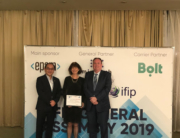- Software Systems: including (but not limited to) Software Engineering, Business Processes, Organisational Architectures, Computing Theory, and Education and Gender Issues on these topics.
- Intelligent Systems: including (but not limited to) Artificial Intelligence, Data Science, Big Data, Operations Research, and Education and Gender Issues on these topics.
- Systems in Practice: including (but not limited to) Human-Computer Interaction, Education, Applications in industry/government/society, and Gender Issues on these topics.
- Computer Technologies: Specialised technologies not in the other tracks, such as IoT, Blockchain, Edge Computing, Virtual/Augmented Reality, etc.
- Full papers: up to 10 pages, reporting completed/consolidated work.
- Short papers: between 3 and 5 pages, reporting work in progress, preliminary results, or proposing new areas/perspectives of disciplinary work.
- “Journal first”: articles already published, in 2021 or 2022, in an indexed journal, with topics relevant to CLEI 2023.
- Luca Cernuzzi, Universidad Católica Nuestra Señora de la Asunción (Paraguay)
- José María Tapia, Universidad Mayor de San Andrés (Bolivia)
- Hernán Astudillo, Universidad Técnica Federico Santa María (Chile)
- Carlos Luna, Universidad de la República (Uruguay)
- José Miguel Rojas, Universidad de Sheffield (United Kingdom)
- Sheila Reinehr, PUC Paraná (Brazil)
- Boris Llanos, Universidad Autónoma Tomás Frías (Bolivia)
- Carmelo Bastos, Universidade de Pernambuco (Brazil)
- Eloy Gonzales, Universidad Mayor de San Andrés (Bolivia)
- César Collazos, Universidad del Cauca (Colombia)
- Yohoni Cuenca y Fátima Dolz, Universidad Mayor de San Andrés (Bolivia)
- Enzo Rucci, Universidad Nacional de La Plata (Argentina)
- Moises Silva, Universidad Mayor de San Andrés (Bolivia)





